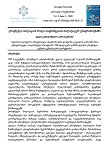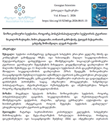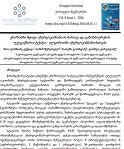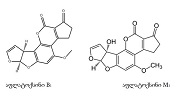Hierarchical Structure of Personality and Use in Practice
Downloads
The article attempts to systematize the most acute issues of the organization of the person’s psyche, such as: the structure of mental processes, the structure of the personality, the structure of the motivational system, and other types of structures that deserve the attention of scientists less than other mental events and processes. Whereas an adequate understanding of personality structure tells a lot about the mental mechanisms that guide human action and behavior. Hierarchical organization of the psyche is of prime importance in understanding the structure of a person, which allows for a more adequate conclusion to be made in the assessment of human behavior. The suitability of the approach is confirmed by the possibility of application in practical fields. Among them, law is worth mentioning as a field included in category of social sciences.
Downloads
Maslow, A. (1943). A theory of human motivation. Psychological Review, 50(4), 370–396.
Kotler Ph. (1980) Principles of Marketing, Prentice-Hall, inc. New York.
Uznadze D. (1940). General Psychology. Tbilisi (in Georgian).
Nadirashvili Sh. (2014). Antropic Theory of Attitude. Sulakauri Pub., Tbilisi (in Georgian).
Freud Sigmund (1923). Introductory lectures on psycho-analyses (J. Riviera, Trans.). London, Allend & Unwin.
Piaget J. (1977). The development of thought: Equilibrium of cognitive struqtures. New York, Viking Press,.
Goleman D. (2005). Emotional Intelligence. Batam books, New York.
Kohlberg L. (1981). The philosophy of moral development. New York, Harper and Row,.
Piaget J. (1965). The Moral judgementof the child. New York, Macmillan.
Kruger T. (2012). Moral Intelligence: The Construct and Key Correlates. Unversity of Johannesburg,
Tanner C., Christen M. (2013). Moral Intelligence – A Framework for Understanding Moral
Competences. Zeppelin University & University of Zurich.
Goroshidze G. (1999). General Intelligence as a Set Structure. Materials of the scientific conference dedicated to the 110th anniversary of D. Uznadze's birth. Tbilisi, p. 22-23.
Goroshidze G. (2022). Moral intelligence as the basis of human subjective well-being. Educational sciences and psychology. Peer-reviewed, impact factor, international electronic scientific journal, No. 3 (64), p. 86-95.
Singer P. (2011). Practical Ethics. Cambridge University Press.
Constitution of Georgia (1995). Georgia, Tbilisi (in Georgian).
Organic law of Georgia, Labor Code of Georgia (2010). Georgia, Tbilisi (in Georgian).
Law of Georgia on Civil Service (2023). Georgia, Tbilisi (in Georgian).
Copyright (c) 2024 Georgian Scientists

This work is licensed under a Creative Commons Attribution-NonCommercial-NoDerivatives 4.0 International License.


























































































































































































































